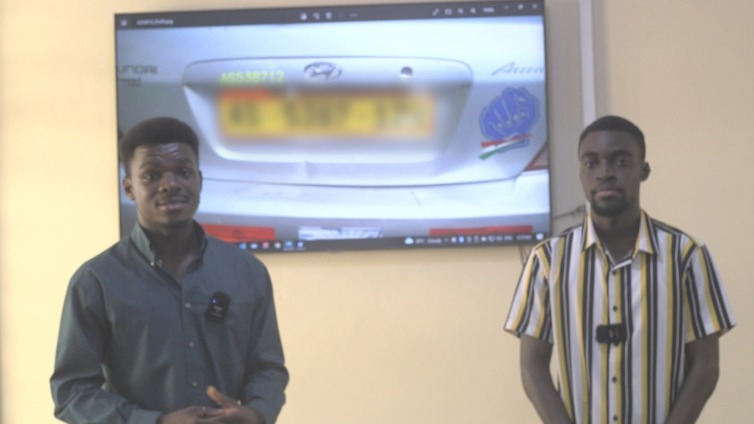Rickety and poorly maintained vehicles on roads across the country remains a major nightmare for commuters.
Despite efforts by the Driver and Vehicle Licensing Authority (DVLA), the Motor Transport and Traffic Department (MTTD) of the Ghana Police Service and other stakeholders to curb the situation, the roads are still full of these vehicles, which cause fatalities.
Fortunately, some computer science students of the Kwame Nkrumah University of Science and Technology, Theophilus Botchway and Markin Papa Kofi Korbah are using Number Plate Recognition to determine the road worthiness or otherwise of your vehicle.
Automatic Number Plate Recognition (NPR) has become part of our lives and promises to stay in future.
The system uses advanced computer vision technologies and artificial intelligence algorithms to identify vehicle licenses.
The system achieves approximately 98.22% accuracy on number plate detection and 78% accuracy on number plate recognition.
The project utilizes image processing technology in order to extract and recognize license plate information from an image or video frames.
Based on the extracted texts from the license plate, they are able to fetch information from the database to determine whether your vehicle is roadworthy.
The system is also tested with different condition complexities, such as rainy background, darkness and dimness, and different hues and saturation of images.
How it works
The first step of NPR is image collection. Images may be extracted from a video, collections of images and cameras. Usually, in the research area, image collections are provided from an open dataset.
The second step is detecting the license plate in the images. This phase usually takes place in the object detection step. Edge detection is commonly used for plate detection. In addition to edge detection, many algorithms have been proposed to solve plate detection.
After the plate is detected, the segmentation phase is conducted to divide the region into locations for detecting digits and letters. The last step is recognition of each segmented region into digits and letters to read the license plate.
To learn more about the App and join the waitlist for its release, partners, stakeholders, or investors can visit https://csapps.knust.edu.gh.
Latest Stories
-
Fugitive Zambian MP arrested in Zimbabwe – minister
19 mins -
Town council in Canada at standstill over refusal to take King’s oath
30 mins -
Trump picks Pam Bondi as attorney general after Matt Gaetz withdraws
42 mins -
Providing quality seeds to farmers is first step towards achieving food security in Ghana
52 mins -
Kenya’s president cancels major deals with Adani Group
2 hours -
COP29: Africa urged to invest in youth to lead fight against climate change
2 hours -
How Kenya’s evangelical president has fallen out with churches
2 hours -
‘Restoring forests or ravaging Ghana’s green heritage?’ – Coalition questions Akufo-Addo’s COP 29 claims
2 hours -
Ensuring peaceful elections: A call for justice and fairness in Ghana
3 hours -
Inside South Africa’s ‘ruthless’ gang-controlled gold mines
4 hours -
Give direct access to Global Health Fund – Civil Society calls allocations
4 hours -
Trudeau plays Santa with seasonal tax break
4 hours -
Prince Harry jokes in tattoo sketch for Invictus
4 hours -
Akufo-Addo commissions 200MW plant to boost economic growth
5 hours -
Smallholder farmers to make use of Ghana Commodity Exchange
5 hours

